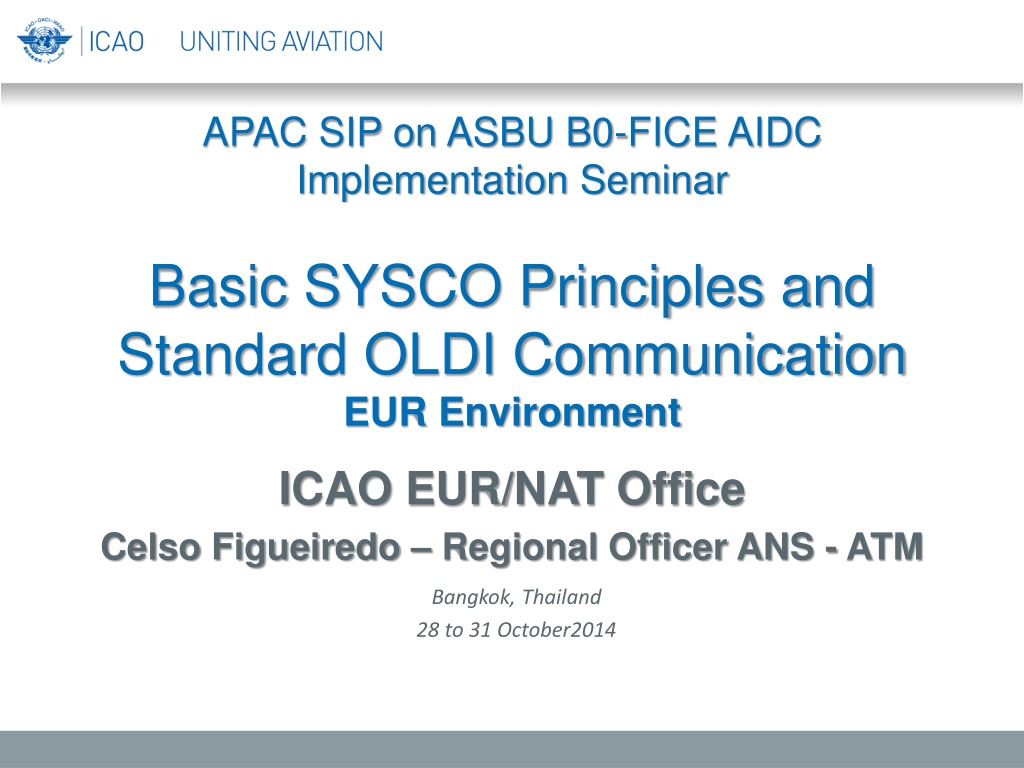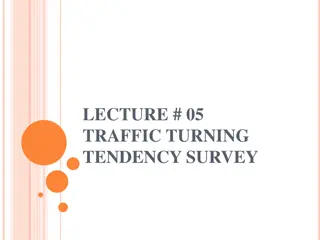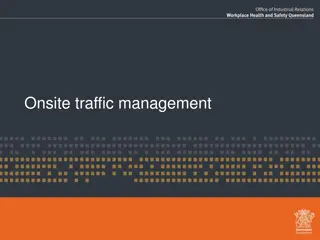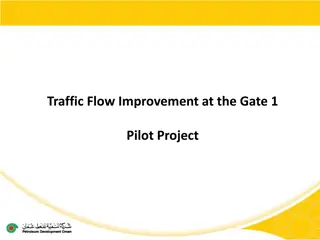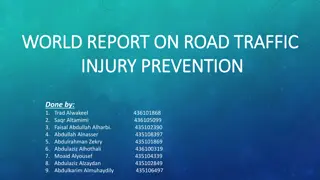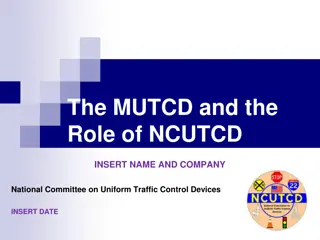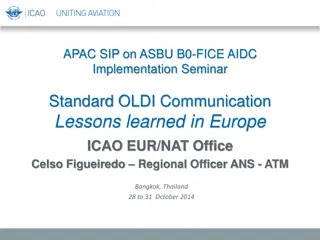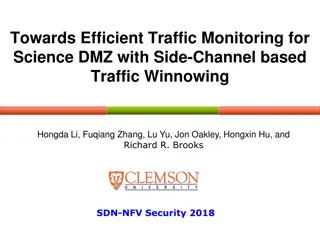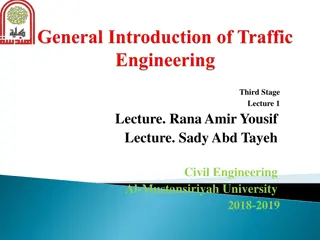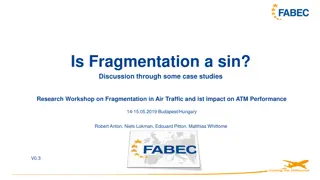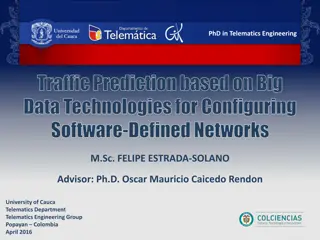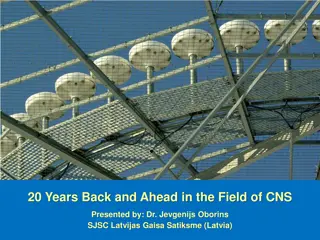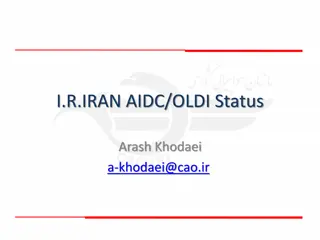Understanding OLDI in Air Traffic Control Systems
Air Traffic Control systems use the OLDI process to ensure safe transfer of flights between different ATC units. OLDI involves the coordination and transfer phases, where controllers exchange data to maintain air traffic safety. The use of standardized messages and online data interchange has improved efficiency in managing flight transfers.
Download Presentation

Please find below an Image/Link to download the presentation.
The content on the website is provided AS IS for your information and personal use only. It may not be sold, licensed, or shared on other websites without obtaining consent from the author. Download presentation by click this link. If you encounter any issues during the download, it is possible that the publisher has removed the file from their server.
E N D
Presentation Transcript
APAC SIP on ASBU B0-FICE AIDC Implementation Seminar Basic SYSCO Principles and Standard OLDI Communication EUR Environment ICAO EUR/NAT Office Celso Figueiredo Regional Officer ANS - ATM Bangkok, Thailand 28 to 31 October2014
By the end of the Presentation you will have a: basic understanding of the need for exchange of data in Air Traffic Control (ATC); an overview of SYSCO standard co-ordination and basic transfer messages as they are used in most ATM systems; understanding of SYSCO terminology; definition of Standard OLDI message types; purpose of Standard OLDI messages; timing of the transmission of Standard OLDI messages; system responses to Standard OLDI messages. APC AIDC/OLDI Seminar - Celso Figueiredo 2
Whats OLDI? Flights which are being provided with an ATC service are transferred from one ATC unit to the next in a manner designed to ensure complete safety. In order to accomplish this, it is a standard procedure that the passage of each flight across the boundary of the areas of responsibility of the two units is co- ordinated between them before the flight reaches the boundary. In OLDI, and in the ATM systems, we call this process the Coordination Phase. 1 APAC AIDC/OLDI Seminar - Celso Figueiredo 3
Whats OLDI? 2 After the receipt of coordination information, the receiving controller uses this information to provide view of the traffic in relation to other aircraft and airspace features. When the flight arrives at, or adjacent to, the boundary between the ATC units, control of the flight is transferred to the next unit. In OLDI, and in the ATM systems, we call this the Transfer Phase. APAC AIDC/OLDI Seminar - Celso Figueiredo 4
Whats OLDI? When carried out by telephone, the passing of data on individual flights is a major support task at ATC units. The operational use of connections between Flight Data Processing Systems (FDPS) at ACCs replaces such verbal estimates . This can be achieved using ICAO messages sent by AFTN. This process is supported by most ATM systems. AFTN messages allow for a limited flow of standard data between ATC units. The requirement for an increase in the data transfer requirements led to the development of On-Line Data Interchange (OLDI) within Europe in the early nineteen eighties. 3 APAC AIDC/OLDI Seminar - Celso Figueiredo 5
Whats OLDI? In order to facilitate implementation, common rules and message formats were elaborated and agreed by the agencies concerned and incorporated in the EUROCONTROL Standard for On-Line Data Interchange. This process is also referred to as SYSCO (System Assisted Coordination). The OLDI standard is produced to support the continuing development of such facilities in compliance with the requirements of EATCHIP1. 1 EUROCONTROL ATC Harmonization and Integration Programme 4 APAC AIDC/OLDI Seminar - Celso Figueiredo 6
SYSCO, brief description System Assisted Co-ordination (SYSCO) is a EUROCONTROL protocol for co-ordination and transfer between controllers. In the ATM systems the protocol is used between ATC centers and between ATC sectors. OLDI stands for: On Line Data Interchange. APAC AIDC/OLDI Seminar - Celso Figueiredo 7
OLDI Messages OLDI messages are exchanged between ATC units to provide co-ordination and transfer of control information. We will now look at the terminology used in most ATM systems during the co-ordination and transfer process. APAC AIDC/OLDI Seminar - Celso Figueiredo 8
SYSCO/OLDI Definitions Co-ordination Entry/Exit Point (COP in/out) Is the agreed point, on or adjacent to the boundary between ATC areas of responsibility, used in a co-ordination sequence and referred to in co-ordination messages. In the ATM systems these points are qualified depending on whether they are viewed as an exit COP in or entry COP out point. Transfer Flight Level (TFL) This is the level used in co-ordination messages as the level that the flight will be cleared to when transferring from one controller to another. In the ATM systems this level is qualified depending on whether it is viewed as the exit XFL level or planned entry PEL level. APAC AIDC/OLDI Seminar - Celso Figueiredo 9
SYSCO/OLDI Definitions Cleared flight Level (CFL) Is the level that the pilot is currently instructed to fly at. It may be different to the TFL mentioned above, but should normally be the same as the TFL when the flight is handed over to the next controller. Assigned Speed (ASP) Is the speed (indicated airspeed IAS, or Mach number) that the pilot is currently instructed to fly at. It is used by controllers to maintain the required separation between flights. Assigned Heading (AHDG) Is the heading, in degrees magnetic, that the pilot is currently instructed to fly. APAC AIDC/OLDI Seminar - Celso Figueiredo 10
We will now look at the OLDI messages and their purpose. APAC AIDC/OLDI Seminar - Celso Figueiredo 11
OLDI Messages Definitions ABI Initial notification and updates flight plan information Advance Boundary Information Message ACT Automatic update of FPL data with estimate information Activate Message PAC Notification and pre-departure co-ordination where flight time to COP is too short for ACT message Preliminary Activate Message REV To transmit revisions to co-ordination data (time, level, code, COP) Revision Message LAM Automatically generated message by receiver to indicate receipt of transmitted message. Logical Acknowledgement Message APAC AIDC/OLDI Seminar - Celso Figueiredo 12
OLDI Messages Definitions TIM At the end of the co-ordination phase, to signify the change from Coordination to Transfer phase. Includes control data (CFL, AHDG, ASP) Transfer Initiation Message SDM To transmit changes to control data during the Transfer Phase (updates TIM data) Supplementary Data Message COF Sent by transferring controller to indicate flight has been instructed to change frequency Change of Frequency Message MAS Message to the transferring unit to indicate two-way RTF contact has been established with the flight Manual Assumption of Communications Message APAC AIDC/OLDI Seminar - Celso Figueiredo 13
Basic OLDI procedure. APAC AIDC/OLDI Seminar - Celso Figueiredo 14
Prior to FIR entry At a predefined number of minutes prior to the COP, an ABI is sent. FIR (first sector) SP time Provides: - Missing FPL data - ABI + revisions - SSR code to facilitate early correlation ABI FIR boundary APAC AIDC/OLDI Seminar - Celso Figueiredo 15
What is sent in response? LAM is returned. If the information sent in the ABI needs to be updated, it is achieved by sending another ABI message containing the revised data. APAC AIDC/OLDI Seminar - Celso Figueiredo 16
Prior to FIR entry At a predefined number of minutes or distance prior to the COP, an ACT is sent. (coord. phase) Airspace (sector) SP time/ distance Provides: - Coordination data - Performs SSR code retention check - code/callsign correlation ACT FIR boundary APAC AIDC/OLDI Seminar - Celso Figueiredo 17
What is sent in response? LAM is returned. APAC AIDC/OLDI Seminar - Celso Figueiredo 18
What if the aircraft departs from too close to the COP to allow an ACT to be sent? SP time/ distance APAC AIDC/OLDI Seminar - Celso Figueiredo 19
Close to FIR entry A PAC is used. A PAC replaces the ABI and/or ACT. Airspace (sector) ACT time/ distance Provides: - notification or pre- departure coordination - missing flight plan data Can contain a SSR code request FIR boundary PAC APAC AIDC/OLDI Seminar - Celso Figueiredo 20
PAC Messages If the information sent in the PAC message provides an update of ETD but does not include coordination data it is treated like an ABI on reception. If the PAC message contains coordination data (COP, ETO and TFL) it is treated similar to an ACT on reception. APAC AIDC/OLDI Seminar - Celso Figueiredo 21
What if revisions to coordination are required? t1 t0 FL 310 FL 290 APAC AIDC/OLDI Seminar - Celso Figueiredo 22
Revision of coordination required A REV is used. Airspace (sector) Provides: Automatic notification of: - Code/RVSM change - Transfer level change - ETO at the COP change - Can also change route / COP REV FIR boundary APAC AIDC/OLDI Seminar - Celso Figueiredo 23
What is sent in response? LAM is returned and a FPL created if the sector responsible for the control of the flight can be identified. APAC AIDC/OLDI Seminar - Celso Figueiredo 24
Transfer of Communication and Control APAC AIDC/OLDI Seminar - Celso Figueiredo 25
Transfer initiation At a predefined distance or time prior to the COP, a TIM is sent. If distance and time are set to 0, TIM is not automatically sent. Airspace (sector) SP time/ distance Signifies: - end of coordination phase - start of transfer phase - forwards Executive Control data (AHDG, CFL, ASP) to the accepting controller TIM APAC AIDC/OLDI Seminar - Celso Figueiredo 26
What is sent? Not before the flight has been coordinated. Automatically at a (SP) distance/time from COP out. When the above SP s are set to 0 , the TIM is not automatically sent. Regardless of the SP, TIM message sending is also triggered when on certain controller actions that will be covered later. A TIM is acknowledged by a LAM. APAC AIDC/OLDI Seminar - Celso Figueiredo 27
Transfer initiation After the TIM, any changes to specific FDR fields result in a SDM being sent. Airspace (sector) SP Notifies changes for which approval is not required: - CFL - ASP - AHDG SDM APAC AIDC/OLDI Seminar - Celso Figueiredo 28
What is the last step? COF is sent. APAC AIDC/OLDI Seminar - Celso Figueiredo 29
Transfer Completion A COFis sent on controller Transfer input (not an automatic function). Airspace (sector) - Manually initiated - A TIM is also sent if COF sent before the automatic TI event or if SPs for TIM sending are set to 0 COF APAC AIDC/OLDI Seminar - Celso Figueiredo 30
What is sent in response? LAM is returned. APAC AIDC/OLDI Seminar - Celso Figueiredo 31
And finally MAS may be manually initiated by the accepting controller. Not mandatory if a COF is used. Acknowledged by a LAM. APAC AIDC/OLDI Seminar - Celso Figueiredo 32
Transfer Completion A MASis sent on controller Assume input. Airspace (sector) - Manually initiated MAS APAC AIDC/OLDI Seminar - Celso Figueiredo 33
Standard OLDI Messages ABI/PAC ACT/PAC REV TIM SDM COF A LAM LAM LAM LAM LAM LAM MAS B LAM A B Coordination Phase Notification Phase Transfer Phase APAC AIDC/OLDI Seminar - Celso Figueiredo 34
OLDI Message Reception Here is the process for handling OLDI messages. APAC AIDC/OLDI Seminar - Celso Figueiredo 35
OLDI Message Reception On reception a syntax check is performed. If error, put in OLDI Queue for manual processing. After syntax check a semantic check is performed. If error, put in OLDI Queue for manual processing. In both cases LAM is not sent. When no error, further processing takes place : LAM sent: associate with previous message or if no previous message, a warning is displayed. APAC AIDC/OLDI Seminar - Celso Figueiredo 36
OLDI Message Reception No error - associated processing performed. Successful - Acknowledgement message sent. Successful: ABI, PAC, ACT - system tries to retrieve first controlling sector. sector determined, acknowledgement message sent. sector cannot be determined, message put in OLDI Queue, no acknowledgement message sent. Unsuccessful Other - put in OLDI Queue, no acknowledgement message sent. APAC AIDC/OLDI Seminar - Celso Figueiredo 37
That completes: Basic SYSCO Principles and Standard OLDI Communication. APAC AIDC/OLDI Seminar - Celso Figueiredo 38
Thank You APAC AIDC/OLDI Seminar - Celso Figueiredo 39
